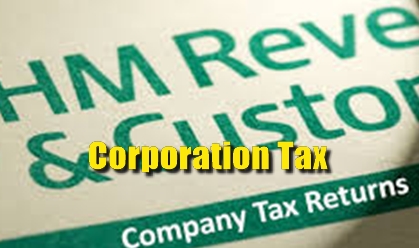Corporation Tax
Corporation Tax is payable on the taxable profits of limited companies and other organisations including clubs, societies, associations and other incorporated bodies.
Taxable profits for Corporation Tax include:
- Profits from taxable income such as trading profits and investments profits
- Chargeable gains
For Corporation Tax, the tax year is called the ‘financial year’ and runs from 1 April to 31 March. The Chancellor sets out the rates of Corporation Tax and various allowances, reliefs and credits in the budget each year. Normally any changes are announced one or more financial years in advance of the year to which they apply.
There are currently two rates of Corporation Tax, depending on the company’s taxable profits:
- The lower rate – known as the ‘small profits’ rate, for profits up to £300,000 (2019/20rate – 19%)
- The upper rate – known as the ‘full rate’ or ‘main’ rate, for profits in excess of £300,000 (2019/20 rate – 19%, but this will fall to 17% from April 2020)
There is also a sliding scale between the lower and upper rates known as marginal relief. The means if your company’s profits are over the lower rate but less than the main rate the effective rate of Corporation Tax you pay rises gradually from the lower rate to the higher rate depending on your taxable profits; this will disappear in April 2014 with the main rate being the only tax rate.
If your company is subject to Corporation Tax you will need to:
- Tell H M Revenue and Customs that its liable for Corporation Tax purposes
- Pay the right amount of Corporation Tax on time
- File a Company Tax Return (Form CT600) together with your financial statements.
There are different deadlines for each of these requirements. If you don’t meet those deadlines, your company or organisation may be charged interest and/or penalties.
The deadline to pay your Corporation Tax is before the deadline to file your company Tax Return. Generally you must:
- Pay any Corporation Tax due by 9 months after the end of your company’s Corporation Tax accounting period.
- File Form CT600 and the company’s financial statements by 12 months after the end of your company’s Corporation Tax accounting period.
You must pay your Corporation Tax electronically for all accounting periods and you must also file your Company Tax Return and supporting financial statements online.
Income Tax
Taxable Income
Income Tax is a tax on income to individual and trusts. Not all income is taxable and you are only taxed on ‘taxable income’ above a certain level. Even then there are other reliefs and allowances that can reduce your Income Tax bill.
Taxable income includes:
- Earnings from employment
- Earnings from self employment (sole traders and partnerships)
- Most pension income (state, company and personal pensions)
- Interest on most savings accounts
- Income from shares (dividends)
- Rental income
- Income paid to you from a trust
Tax allowances
Nearly everyone who is resident in the UK for tax purposes receives a ‘personal allowance’ which is an amount of taxable income you are allowed to earn or receive each year tax free.
The basic personal allowance or tax free amount is £12,500 (2019/20 rate). You may be entitled to a higher personal allowance if you are 65 or over.
Income Tax is only due on taxable income that’s above your tax free allowances.
How much Income Tax you pay
After you have calculated your taxable income less any reliefs and tax free allowances, the amount of tax you pay is calculated using different tax rates and a series of tax bands.
